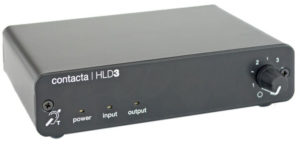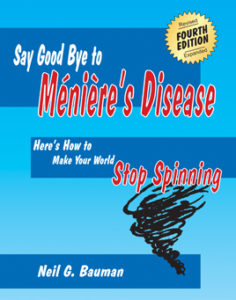by Neil Bauman, Ph.D.
A man wrote,
I have some questions regarding the drug listings in your book Ototoxic Drugs Exposed. First, there is no reference to the standard dosage used. Is the dosage related to the severity of the ototoxic side effect? Also, is dosage a key player in assessing the potential ototoxic side effects for the drugs listed?
For example, Zoplicone is rated Class 1, which is very low and the tablet form comes in 5 mg. and 7.5mg. Assuming similar chemical makeup between two individuals who were susceptible to tinnitus side effects etc., would the person taking the lesser dose experience less of a side effect as compared to the person taking 50% more on a regular basis?
You’ve asked some good questions. Let me try to answer them.
Question 1. In regards to drug dosages, you are correct. I do not list references to the standard dosage used. I typically stay away from dosage information for several reasons.
First, doctors can prescribe any dose they want for as long as they want. Thus the dosage you are prescribed may not correlate to the dosage used in the drug studies that revealed certain ototoxic side effects.
Second, I am not a medical doctor and thus do not prescribe drugs. If I put information regarding dosage, then people would quite logically think that certain levels might be safe and certain levels might not be. This might be true for the average person. However, each person is unique. Some people are much more sensitive to drugs than others. Thus, for example, a 5 mg dose of drug “A” might be safe for the average person, but might cause you to have screaming tinnitus. If you thought it was going to be safe for you too, then you’re going to be upset to say the least!
Third, there is very little information available on drug dosage and the resulting severity of ototoxic side effects. This information is generally just not available. However, in the few cases where I come across such information, I do mention it. Since this information is not common, you’ll rarely see it in my book.
Question 2. Is the dosage related to the severity of the resulting ototoxic side effect?
This question is difficult to answer because the results vary all over the place depending on a person’s body chemistry, emotional makeup and many other factors.
It is logical to think that as the dose increases, the resulting side effects would also become more and more severe. In real life for some ototoxic side effects, sometimes this is true. Other times there doesn’t seem to by any correlation with increasing dosage and the severity of the resulting ototoxic side effects.
For example, hearing loss may increase in step with larger drug doses, whereas tinnitus at a certain volume may just suddenly appear, and increasing the dose won’t increase the volume of the tinnitus.
It is more common, I think, that you can increase the dose to some threshold level, at which point ototoxic (and other) side effects will appear.
For example, as long as the drug dose remains below a certain threshold, you might not experience tinnitus. However, when you exceed this threshold level, suddenly tinnitus shows up. How bad your resulting tinnitus will be may not have much to do with how large the drug dose was, but just that you exceeded your body’s threshold level for that drug. As a result, one person might have mild tinnitus and another person may have screaming tinnitus as soon as they cross that magical threshold.
Another complicating factor, one you did not mention, is how long you need to take a given drug at a given dose before ototoxic side effects begin to appear. This varies all over the place too. For example, one person may take a drug for 5 years before they start to experience a given ototoxic side effect while another person may experience this same side effect after just 2 weeks. I’ve seen this happen in the case of Atenolol. It seems to depend on your sensitivity to drugs, your body chemistry, your emotional state and other factors.
Still another factor is whether the size of the drug dose relates to whether the side effect will be permanent or temporary? In other words, will a low dose of a given drug result in temporary tinnitus, while a high dose of the same drug cause permanent tinnitus? I am sure this is the case with some drugs, but with other drugs, once you cross that magical threshold boundary, your tinnitus may prove to be permanent.
A related question is, “Does the length of time a person takes a drug correlate with the permanence of any resulting ototoxic side effects?” Putting it another way, if I take a drug for several months will the side effects tend to be permanent, whereas if I take the same drug for 3 days would the side effects tend to be temporary? Again, the results vary all over the place. For example, some people get tinnitus while they are on a given drug, and their tinnitus typically fades away when they get off the drug, no matter how long they have been on it. A good example of this is Aspirin. In other cases, a given person may get severe, tinnitus from the very first pill they take and their tinnitus never goes away? This happens to some people who take Citalopram, yet others never get tinnitus from taking Citalopram.
3. Further, do you consider dosage a key player in assessing the potential ototoxic side effects for the drugs listed?
Generally I don’t consider dosage because I typically don’t have information correlating dosage to ototoxic side effects. I just look at whether a drug causes specific ototoxic side effects or not. However, if I have access to this kind of information (to whatever degree), I put it in.
4. Assuming similar chemical makeup between two individuals who were susceptible to tinnitus side effects, for example, would the person taking the lesser dose (e.g. Zoplicone comes in 5 mg and 7.5 mg tablets) experience less of a side effect as compared to the person taking 50% more on a regular basis?
I’m sure that can and does happen, but it is not a sure thing. This is because some people are more sensitive to a given drug than others are. This means that a person that was more sensitive might have severe tinnitus from taking a 5 mg dose, whereas a person that was less sensitive might not even get tinnitus at the 7.5 mg dose.
Then again, the severity of a side effect such as tinnitus varies greatly between people—more so than I think it does between dosage levels. For example, two people could take the same dose, but have very different reactions. One could have mild tinnitus, another could have screaming tinnitus and a third person might have no tinnitus at all—all from the same dose. It’s just not fair, is it?
As you can see, there are still many unknowns and variables regarding ototoxicity and drug dosage. As a result, my book is sparse on such details. Therefore, a good rule of thumb is to take the lowest dose of any drug that does the job for the shortest time you can, and hope by doing this that you will avoid most of the ototoxic (and other) side effects of drugs.
To learn as much as you can about the specific ototoxic side effects of drugs, see the author’s comprehensive book Ototoxic Drugs Exposed 3rd edition. This book contains information on the ototoxicity of 877 drugs, 35 herbs and 148 chemicals.



Leave a Reply